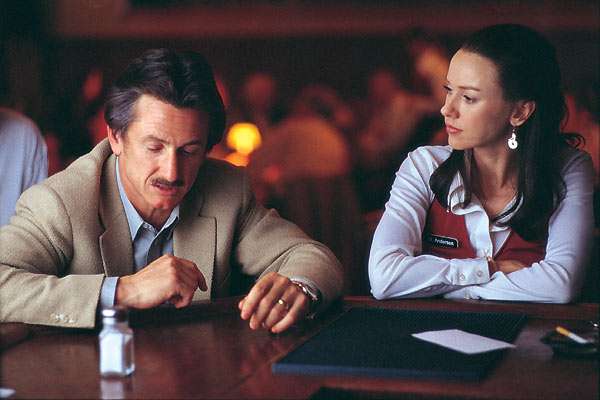Before the story of the Hurricane, there was another man the authorities came to blame…and he was the Champion of the World. Unforgivable Blackness: The Rise and Fall of Jack Johnson, Ken Burns’ new documentary on the much-maligned Progressive Era boxer, premieres this Monday and Tuesday on PBS.
Category: History
Silicon Council.
Seen and taken from Cliopatria, Crooked Timber holds an online symposium on China Mieville and Iron Council, which includes informed essays by John Holbo, Belle Waring, Henry Farrell, Miriam Elizabeth Burstein, John Quiggen, and most notably, Mieville himself. I haven’t gotten through all of these yet, but there’s some really good stuff here, including Mieville’s nuanced analysis of the great Tolkien-Moorcock divide in fantasy writing. (I for one think that, when it comes J.R.R.T., Moorcock is full of it, as is Phillip Pullman.) Of Mieville’s books, I most enjoyed Perdido Street Station and most admired The Scar. Iron Council was a good read in fine phantasmagoric Mieville form, but I ultimately thought it was too self-conscious in its historical agenda — At times I felt I was reading J. Anthony Lukas’s Big Trouble by way of Mervyn Peake. I appreciate what Mieville was trying to do…I just don’t think he quite pulled it off.
Kinsey on Lincoln.
Schindler, Rob Roy, Darkman, Qui-Gon, Kinsey…why not Honest Abe? Liam Neeson is apparently in talks to play Lincoln in a Spielberg-directed biopic, to be based on Doris Kearns Goodwin‘s forthcoming book, The Uniter. Ok, that’s not bad…but hopefully this project turns out better than Amistad.
Also in loosely related Lincoln-by-way-of-Kinsey news, Salon‘s Andrew O’Hehir casts a troubled eye at C.A. Tripp’s Intimate World of Abraham Lincoln. As he ably points out (as does George Chauncey in the excellent Gay New York), “the difficulty with assessing Lincoln’s private life (or that of anyone else who lived before the 20th century) is that the nature of private life has changed dramatically from his time to ours, and the distance between us distorts the view…Whether [Lincoln and Joshua Speed’s, with whom Lincoln shared a bed] relationship had a sexual component or not, it belongs to a vanished world of intimate male friendships of a kind almost unrecognizable to us.” In other words, sexual orientation is an historically dynamic idea. Homosociality does not necessarily imply homosexuality, and one cannot simply read 19th century sources and infer a 20th century mindset. You have to delve a little deeper. Update: Columbia’s David Greenberg also weighs in for Slate.
The Battles Rage On(line).
“My dear McClellan: If you don’t want to use the Army I should like to borrow it for a while.” Good news for Civil War reenactors and military history enthusiasts: The Library of Congress, the Virginia Historical Society, and the Library of Virginia are posting over 2240 CW-era maps and charts online. (AP Story here.)
Shambling to the polls.
By way of Quiddity, Film Threat examines the uncanny correlation between Republican administrations and excellent zombie movies. You do the math. (Adding fuel to the fire, the new Romero, Land of the Dead, is set for October 21.)
A Trailblazer’s farewell.
Unbossed and unbought to the end, R.I.P. Shirley Chisholm 1924-2005.
Death of a Salesman.

Then again, Samuel Byck wasn’t like most people either…in fact, that may be the biggest problem with this otherwise haunting film. Played for laughs in the Sondheim Assassins, Byck here is portrayed as a beaten-down American Everyman of the Willy Loman/Travis Bickle school, albeit one with a Pulp Fiction-like problem with authority and a frozen run of luck like you read about. But, while the film’s hold lies in Sean Penn’s powerful portrayal of a down-on-his-heels, borderline-stable guy who gets one too many doors slammed in his face (to Penn’s credit, his performance never really feels like a stunt, as it might have with a lesser actor), the real Samuel Byck was an even stranger bird than this film lets on. For example, there’s no mention of Byck’s protesting outside the White House in a Santa suit here, and the whole tapes-to-Leonard-Bernstein angle is played as straight as it possibly can be.
But, historical veracity aside, The Assassination of Richard Nixon still makes for a grim and compelling 90 minutes of darkening gloom, anchored by Sean Penn’s slow, fidgety burn. (Watts, Don Cheadle, Michael Wincott, and Jack Thompson all do good character work here, but the film is Penn’s, and he’s the only one to leave a mark.) The movie’s unrelenting downward trajectory is clear from the opening titles, and the final scene at BWI airport probably played a few minutes too long, particularly as Byck awaits boarding for his final destination. All in all, though, The Assassination of Richard Nixon is a somber inquiry into a life of quiet desperation, and a sad reminder that, regardless of what our American dream may promise, there are no guarantees in this world, and all too often no respite for the damned.

Distance Learning.
By way of Cliopatria, Google announces an agreement to digitize the holdings of many of the world’s great libraries, including those of Harvard, Oxford, Michigan, Stanford, and the NYPL. My, that should be enormously useful for researchers the world over once they get it up and running. That noise you heard in the background was millions of historians’ frequent flier miles suddenly crying out in terror and then suddenly silenced.
Don’t Know Much about History.
All the news that’s fit to print…According to the NYT, “Mr. Bush never lingers at much of anything, but he really doesn’t linger in museums and at historical sites.” Nope, can’t say that’s much of a shocker.
Careful what you wish for.
“Intent on using his capital to secure his place in history, Bush may finally pass a right-wing social agenda, an entitlement reform agenda and a neoconservative foreign policy…And by enacting his program, Bush may dash conservatives’ hopes for a lasting Republican majority.” With trouble already brewing among House conservatives, Columbia PhD, former FCC colleague, and Gipper scholar Matthew Dallek contrasts Dubya’s governance with that of Reagan, and finds the former wanting, to say the least.
